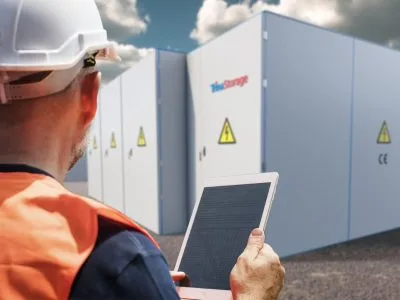Will IRS Letter on Home Batteries Open Floodgates for Residential Storage Retrofits?
The United States IRS offers a lucrative 30% investment tax credit (ITC) for solar installations. Battery storage could be added – but they can only be charged with solar power.
The United States Internal Revenue Service (IRS), in a response to an enquiry from a couple, has stated that the entire cost of a battery energy storage retrofit could be subject to the tax credit so long as the sun is its only source of power. This statement could trigger an avalanche among solar installers hoping to bundle energy storage offerings into their services.
The IRS reply states that the battery investment “meets the definition of a ‘qualified solar electric property expenditure’ under § 25D(d)(2) of the Code, and therefore, you may claim a tax credit on this Battery.” However, the letter also specifies that this exception is only awarded to the taxpayer who made the enquiry in question.
This is the first private IRS letter to look at retrofits rather than new solar-plus-storage systems. Private letters in the past have indicated that new solar battery storage systems would be able to benefit from the ITC. While this letter only addresses a unique case, it gives insight to how retrofits could be categorised in future tax rulings.
While prices of lithium-ion batteries have dropped and continue to drop, adding storage to a residential solar installation is still a several thousand dollar proposition – at close to $3,000/kWh in 2018, a 30% tax credit significantly eases the load.
Today, solar-storage households are far fewer than those relying on solar alone, however adoption rates continue to grow. Some states, such as California and Hawaii have implemented lucrative policies to encourage solar uptake. However, other states are looking to implement residential demand charges based on peak power draw – as peak times coincide with peak solar generating output, this makes standalone solar a less valuable proposition.
As solar households looks to improve the economics of their installations, knowing how the tax office categorises energy storage is essential to their future calculations.
If you want to know more about this and other topics directly from end users of energy storage technologies join us at one of these annual events: The Energy Storage World Forum (Grid Scale Applications), or The Residential Energy Storage Forum, or one of our Training Courses.




